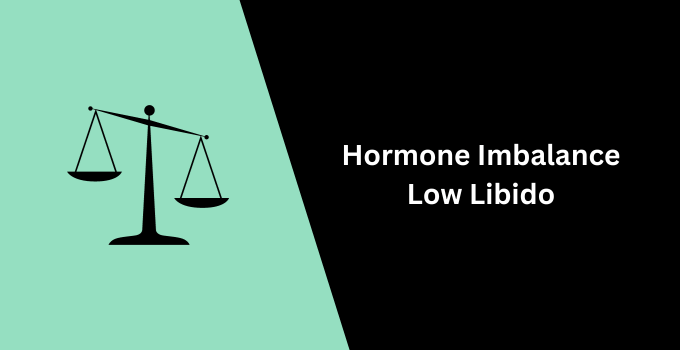You’re worried and trying to rev up your sex drive while battling hormone imbalance.
It’s not just a matter of stoking the fire; your body’s complex hormone system can significantly dampen your libido when it’s out of whack. Whether it’s estrogen taking a nosedive during menopause for women, or testosterone levels dropping in men, these hormonal shifts can leave you feeling less than amorous.
But don’t resign yourself to a loveless existence just yet. You’ve got options, from hormone therapy to lifestyle changes, that can help get your hormones—and your sex life—back on track. Consulting with your doctor is a solid first step to pinpoint the imbalance and chart a course to reclaim your desire.
Recognizing Hormone Imbalance Signs
How can you tell if your waning sexual desire is due to a hormone imbalance? It’s essential to recognize the signs that may indicate a hormonal imbalance.
For men, low testosterone levels can be a significant factor contributing to a decrease in sex drive. After hitting 35, it’s not uncommon for men to experience a gradual decline in these critical sex hormones.
Women, on the other hand, may notice a drop in libido due to a decrease in estrogen, especially during menopause. This can also lead to sexual dysfunction, such as vaginal dryness, which further affects sexual desire.
If you’re grappling with a low sexual desire and these symptoms sound familiar, it might be time to explore whether a hormonal imbalance is at play.
Hormones That Affect Libido
Someone experiencing low libido may be dealing with an imbalance in hormones such as testosterone, estrogen, and progesterone, all of which play crucial roles in sexual desire and function. Testosterone isn’t just critical for men; women’s sexual drive also hinges on this hormone. As hormone levels dip—often after age 30 in men and during menopause in women—so does libido.
Estrogen’s drop in women can lead to vaginal dryness and discomfort, affecting libido and sexual response. Bioidentical hormone therapy may offer a solution by restoring balance and potentially rekindling sexual desire. However, it’s essential to understand that hormone fluctuations can affect libido differently for each person, and hormone therapy should be tailored to your specific needs.
Read: How Hormones Cause Low Sex Drive in Women
Impact of Lifestyle on Hormones
Assessing your lifestyle choices is crucial, as they can significantly disrupt hormone balance and affect your libido. Here’s how different aspects of your life can impact your hormones and sexual health:
- Lack of Exercise: Not staying active can lead to weight gain, which often disrupts natural hormone production, including hormones that regulate sexual desire and function.
- Poor Sleep: Inadequate rest can elevate stress hormones and decrease low testosterone causes, hampering sex life.
- Unhealthy Habits: Smoking and excessive alcohol can lead to high levels of toxins in the body, negatively affecting overall well-being and sexual health.
- Chronic Stress: Ongoing stress can alter hormones throughout your body, reducing sexual desire and compromising healthy lifestyle choices.
Treatment Options for Balance
Explore treatment options that can restore hormone balance and rejuvenate your libido, creating a pathway to improved sexual health and satisfaction. If you’re grappling with low sex drive, therapy may address the underlying causes, from hormonal imbalances to psychological factors.
For women, especially those experiencing menopausal symptoms, bioidentical hormone replacement can level out estrogen dips, potentially reigniting desire. Men might find testosterone replacement therapy effective for boosting sexual desire compared to their previous levels.
Consider lifestyle changes like adjusting birth control methods, which can influence libido. Additionally, engaging in regular sexual activity can sometimes naturally enhance libido.
For personalized care, a referral to a sex therapist could provide targeted strategies to heighten intimacy and pleasure.
Tips for Restoring Sexual Desire
Restoration of your sexual desire may begin with understanding and addressing the hormonal imbalances that contribute to your low libido. Here’s how you can start reclaiming your drive for a healthy sex life:
- Consider hormone therapy: Bioidentical hormone therapy might balance hormones and alleviate symptoms that negatively impact your sex drive.
- Explore lifestyle changes: A nutritious diet, regular exercise, and managing stress can boost your overall sexual health and desire for sex.
- Open communication: Talking about your sexual desires with your partner can improve intimacy and reignite your loss of desire.
- Seek professional help: A healthcare provider can uncover underlying issues impacting your sexual desires and advise on the best course of action.
Frequently Asked Questions
Conclusion
So, you’ve waded through the hormonal swamp, deciphering the signs your body’s been throwing at you. Who knew that the same hormones stirring up teenage angst could, years later, take a nap on your libido? Life’s little ironies, right?
But don’t fret. With a few lifestyle tweaks and some expert advice, you might just find your mojo’s been playing hide and seek. Seek help, balance those hormones, and you could be back to your sassy self in no time.
Affiliate Disclosure: Some of the links in this post are affiliate links, which means I may earn a small commission if you make a purchase through those links. This comes at no extra cost to you. Thank you for your support!

